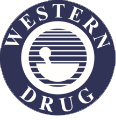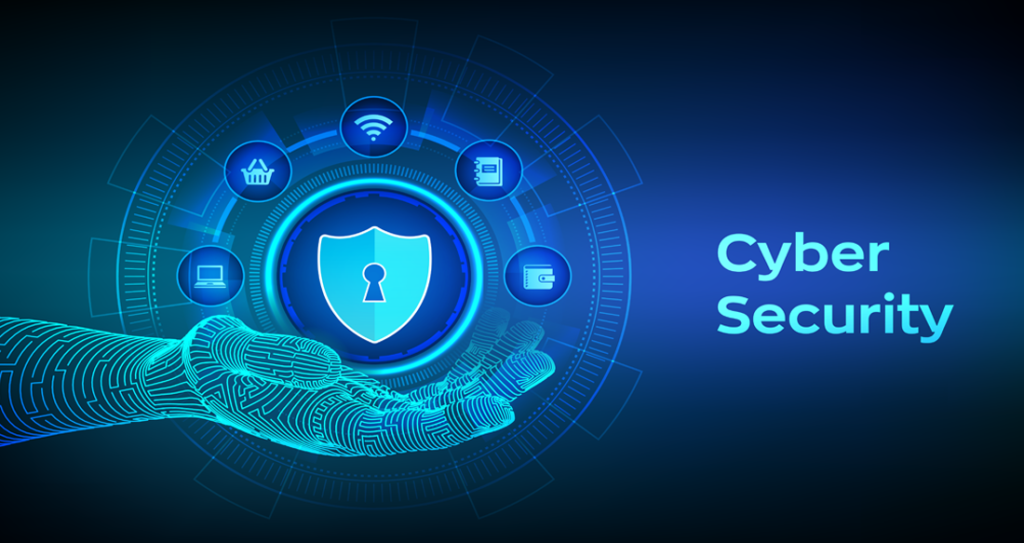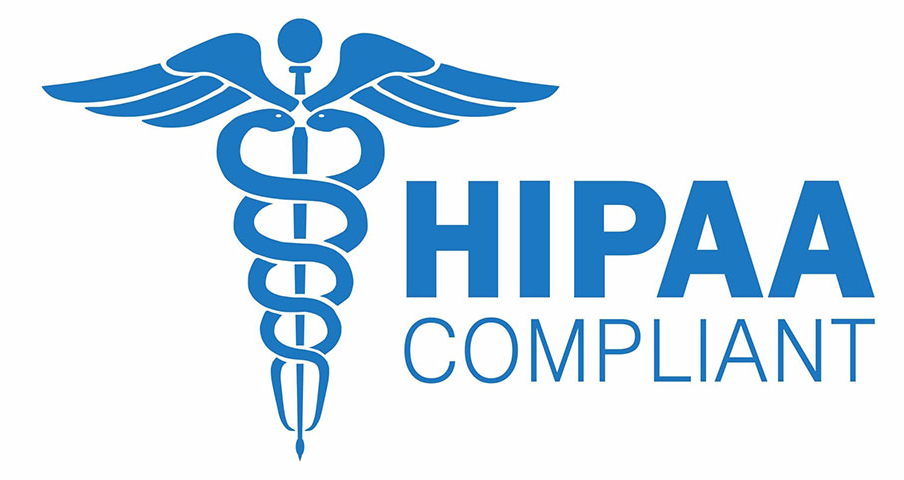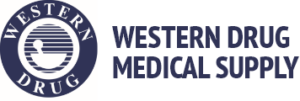
+1 800 921 7514
Healthcare IT Services
Managed IT services for healthcare, why choose us?
We are a US-based healthcare it services provider with a reliable and experienced team. We provide frequent onsite visits to reduce or eliminate healthcare IT issues before they start. IT services for healthcare is what we’re known for, this is why hundreds of healthcare facilities and practices have come to trust and rely on us.
A proven track record in healthcare it services.
Healthcare's unique regulatory requirements, security concerns, and technological needs requires an IT company with a proven track record working within the healthcare sector.
Multiple software applications, EHR's, medical devices, and databases that need to work seamlessly together. Our team has the experience in designing & implementation for easy integration.
We understand that healthcare companies may experience fluctuations in usage demands. This is why we build scalable solutions which handle increasing IT requests and maintain optimal performance as your healthcare organization grows.
Our team has a strong background implementing robust security measures, safeguarding PHI, and maintaining compliance with relevant regulations HIPAA being paramount.
Request a Free Quote
* fields are required
+1 800 921 7514
support@titanassist.com
Featured Testimonials



Healthcare IT Services we offer
Let's improve your healthcare operations with our all-inclusive IT services tailored to your unique needs. We offer managed IT services for healthcare organizations from data security to strategic solutions designed to improve patient care, and streamline operations. We are your trusted partner in delivering your healthcare it managed services.
Healthcare IT Consulting Services
Managed IT Services for Healthcare
HIPAA Compliant VoIP Services
Business Continuity and Disaster Recovery
We are committed to providing quality and reliable managed IT services for healthcare organizations.
IT Services for Healthcare: 3 Simple Steps
BOOK YOUR FREE PHONE CONSULTATION
Schedule a free consultation by requesting a quote or by calling us directly toll free 1-800-921-7514
SCHEDULE FREE IN-PERSON SITE VISIT
Once our free phone consultation has been conducted, we can schedule a free site visit for further discovery.
HEALTHCARE IT SERVICE INTEGRATION DONE!
If everything works out and you select Titan Elite to be your Healthcare IT Service Provider, integration is a breeze.
Top Healthcare IT Resources: Free Download
Strengthen your healthcare IT preparedness with our complimentary downloads. Navigate through a crises effectively with a "Detailed Disaster Recovery Plan Template". Stay ahead of industry trends via the "2023 Annual Healthcare IT & Cybersecurity Report". Ensure patient data security with our "EMR HIPAA Compliance Checklist". Strengthen your team with these resources for better prepared operations.

Disaster Recovery Plan Template
EMR HIPAA Compliance Checklist
2023 Healthcare Cybersecurity Report
IT Due Diligence Checklist
See how choosing the right Healthcare IT Services team can improve your Healthcare Organization.
Managed IT Services For Healthcare: FAQ's
We ensure the security and compliance of patient data, while managing your healthcare IT service needs. With the increasing digital healthcare records and the sensitive nature of medical information, protecting PHI privacy through strong cybersecurity measures and compliance with regulations like HIPAA is priority. Please read our frequently asked questions below for more information.
what is healthcare it services?
Healthcare IT Services
Healthcare IT services play a vital role in drastically improving the healthcare sector through advanced technology solutions. These services hold a comprehensive range of offerings, including electronic health records (EHR) management, telemedicine platforms, and medical billing software. One crucial aspect is cybersecurity and network security, which ensures the defense of sensitive PHI from cyber threats and unauthorized access. By integrating robust cybersecurity measures, healthcare IT services strong data security, maintain compliance with regulations like HIPAA, and enable seamless healthcare experiences for both patients and medical professionals.
for more information on Healthcare IT Services review suggested articles below:


what are the benefits of managed it services for healthcare?
Managed IT Services for Healthcare
Managed IT services for healthcare involve outsourcing the management and maintenance of a healthcare organization’s IT infrastructure to a third-party provider. These services are tailored to meet the unique technological needs of the healthcare sector, including hospitals, clinics, and medical practices.
Managed IT services for healthcare covers a large range of offerings:
1. Infrastructure Management: This includes managing servers, networks, and hardware to ensure reliable and efficient IT operations. It also involves regular maintenance and updates to keep systems running smoothly.
2. Cybersecurity Solutions: Given the sensitive nature of patient data, cybersecurity is a crucial resource. Managed IT services provide advanced security measures such as firewalls, intrusion detection, data encryption, and regular security audits to protect patient information from cyber threats.
3. Electronic Health Records (EHR) Management: Healthcare organizations rely on electronic health records to store patient information securely. Managed IT services can assist in the setup, management, and maintenance of EHR systems to ensure accurate data storage and accessibility.
4. Telemedicine Support: Telemedicine has become essential for remote patient consultations. Managed IT services help set up and maintain telemedicine platforms, ensuring seamless virtual patient care.
5. 24/7 Monitoring and Support: Healthcare IT systems need to be operational at all times. Managed services offer continuous monitoring, proactive issue detection, and around-the-clock technical support to minimize downtime.
6. Data Backup and Recovery: To prevent data loss, managed IT services implement regular data backups and robust recovery plans, safeguarding critical patient information in case of emergencies.
7. Compliance and Regulations: Healthcare is subject to strict regulations like HIPAA. Managed IT services help healthcare organizations stay compliant by implementing necessary security measures and processes.
8. Scalability: Managed services can adjust the IT infrastructure as the healthcare organization grows or evolves, ensuring that technology supports changing demands.
By outsourcing IT management to experts, healthcare organizations can focus on delivering quality patient care while benefiting from the latest technology solutions, enhanced security, and reduced operational risks.
for more information about Managed IT Services review suggested articles below:

Want a more detailed explanation over the phone? We can call you in the next 10 Minutes!
What Are the Benefits of Outsourcing Healthcare IT Management?
Outsourcing Healthcare IT Management: Benefits
Outsourcing healthcare IT management offers a huge amount of benefits to healthcare organizations:
Expertise and Specialization: Managed IT service providers are experts in the field, offering specialized knowledge and experience in healthcare technology. They stay updated with the latest industry trends and best practices, ensuring optimal IT solutions.
Cost Savings: Outsourcing eliminates the need for in-house IT staff and the associated costs of recruitment, training, and salaries. Managed services offer predictable monthly costs, making budgeting more manageable.
Enhanced Data Security: Healthcare data is highly sensitive and subject to regulations like HIPAA. Managed IT providers implement robust security measures, encryption, and regular audits to ensure compliance and safeguard phi.
24/7 Monitoring and Support: Managed services provide round-the-clock monitoring, quick issue detection, and prompt resolution. This minimizes downtime and ensures continuous access to critical systems.
Efficiency and Focus: Outsourcing IT management lets healthcare staff focus on patient care instead of dealing with technical issues. This improves operational efficiency and enhances overall service quality.
Scalability: Managed services can easily scale IT resources based on changing needs, allowing healthcare organizations to adapt to growth or unforeseen changes without disruptions.
Advanced Technology: Managed IT providers offer access to cutting-edge technology and tools that might be cost-prohibitive for smaller healthcare organizations to acquire and maintain on their own.
Disaster Recovery and Backup: Managed services implement robust data backup and recovery plans, ensuring business continuity in case of data loss or system failures.
Telemedicine Support: As telemedicine becomes more prevalent, managed IT services can assist in setting up and maintaining telemedicine platforms, facilitating remote patient care.
Regulatory Compliance: Managed IT providers are well-versed in healthcare regulations and ensure that technology solutions adhere to compliance standards, reducing legal risks.
Vendor Management: Handling multiple technology vendors can be complex. Managed services streamline vendor relationships and ensure smooth coordination.
By outsourcing healthcare IT management, organizations can tap into specialized expertise, enhance security, reduce costs, and free up resources for core healthcare activities, ultimately improving patient care and overall efficiency.
for more information about Outsourcing Healthcare IT Management suggested articles below:

Want a more detailed explanation over the phone? We can call you in the next 10 Minutes!
How Can Managed IT Services Enhance Data Security in Healthcare?
Enhance Data Security in Healthcare: Managed IT
Managed IT services play a crucial role in enhancing data security within the healthcare sector through the following measures:
Robust Cybersecurity Protocols: Managed service providers implement advanced cybersecurity measures, such as firewalls, intrusion detection systems, and malware protection, to safeguard sensitive patient data from cyber threats.
Regular Security Audits: Managed services conduct regular security audits and assessments to identify vulnerabilities and ensure that security protocols are up to date and effective.
Data Encryption: Patient data, both at rest and in transit, is encrypted to prevent unauthorized access. Encryption ensures that even if data is intercepted, it remains unreadable without the decryption key.
Access Control and Authorization: Managed services implement strict access control policy, ensuring that only authorized personnel can access specific patient information. Multi-factor authentication adds an extra layer of security.
HIPAA Compliance: Managed IT services ensure that healthcare organizations meet the requirements of regulations like HIPAA, which mandates the protection of patient health information and other sensitive data.
Employee Training: Managed service providers conduct regular training for healthcare staff on cybersecurity best practices and the importance of maintaining data security.
Incident Response Plans: Managed services develop detailed incident response plans to address data breaches and cyberattacks promptly and effectively, minimizing the potential impact.
Data Backup and Recovery: Managed services implement frequent data backup and recovery solutions, ensuring that critical patient data can be restored in case of data loss or ransomware attacks.
Secure Telemedicine Platforms: As telemedicine gains popularity, managed services ensure that telemedicine platforms are secure and comply with privacy regulations, enabling safe remote patient interactions.
Vendor Security Management: Managed services evaluate the security practices of third-party vendors and partners, ensuring that any integrated systems or services meet the same security standards.
Regular Updates and Patches: Managed service providers keep software and systems updated with the latest security patches to address vulnerabilities and minimize the risk of exploitation.
Employee Monitoring and Awareness: Managed services monitor employee activities for any signs of unauthorized access or suspicious behavior, while also fostering a culture of security awareness among staff.
By implementing these comprehensive security measures, managed IT services help healthcare organizations fortify their data security defenses, protect patient confidentiality, and maintain trust within the industry.
read articles below for information about Managed IT Enhanced Data Security in Healthcare:

Want a more detailed explanation over the phone? We can call you in the next 10 Minutes!
What Role Do Managed IT Services Play in HIPAA Compliance for Healthcare?
Managed IT Services and HIPAA Compliance
Managed IT services play a critical role in ensuring HIPAA (Health Insurance Portability and Accountability Act) compliance for healthcare organizations. Here’s how they contribute to maintaining compliance:
Risk Assessment and Management: Managed service providers conduct regular risk assessments to identify potential vulnerabilities in the IT infrastructure that could compromise patient data. They develop strategies to mitigate these risks while prevent breaches.
Security Measures Implementation: Managed IT services implement a range of security measures, such as firewalls, intrusion detection systems, encryption, and access controls, to protect patient information from unauthorized access or data breaches.
Data Encryption: Managed services ensure that patient data is encrypted both in transit and at rest, making it unreadable to unauthorized individuals even if accessed.
Access Control and Authorization: They implement strict access controls, ensuring that only authorized personnel can access patient data. Multi-factor authentication adds an extra layer of security.
Regular Security Audits: Managed services conduct regular security audits to identify any potential vulnerabilities and ensure that security protocols are effective and up to date.
Employee Training: They provide training to healthcare staff on HIPAA regulations and cybersecurity best practices to ensure that employees are aware of their responsibilities in safeguarding patient data.
Incident Response Plans: Managed services develop detailed incident response plans to address data breaches promptly and effectively, minimizing the impact on patient data and ensuring legal compliance.
Secure Data Storage: Managed services ensure that patient data is stored securely, whether it’s on-premises or in the cloud, and that the chosen storage methods adhere to HIPAA regulations.
Vendor Management: They evaluate the security practices of third-party vendors and partners to ensure that any integrated systems or services meet HIPAA security requirements.
Documentation and Auditing: Managed IT services help healthcare organizations maintain proper documentation of their IT processes, security measures, and policies, which is crucial for demonstrating compliance during audits.
Regular Updates and Patch Management: Managed services keep software, systems, and applications up to date with the latest security patches to address vulnerabilities and maintain compliance.
Data Backup and Recovery: They implement robust data backup and recovery solutions, ensuring that critical patient data can be restored in case of data loss or breaches.
By taking these measures, managed IT services help healthcare organizations align their technology infrastructure with HIPAA regulations, ensuring the protection of patient health information, maintaining legal compliance, and fostering patient trust.
more information about Managed IT Services & HIPAA Compliance suggested articles below:

Want a more detailed explanation over the phone? We can call you in the next 10 Minutes!
Why is Scalability Important in Managed IT Services for Healthcare?
Managed IT Scalability in Healthcare: Importance
Scalability is vital in managed IT services for healthcare due to the dynamic nature of the industry and the evolving technological landscape. Here’s why scalability matters:
Changing Healthcare Needs: Healthcare organizations experience varying levels of demand, especially during peak periods or in response to emergencies. Scalable IT solutions allow for the quick allocation of resources to accommodate increased workloads without disruptions.
Growth and Expansion: Healthcare providers often expand their services, open new facilities, or acquire practices. Scalable IT services can adapt to these changes, ensuring that technology supports growth without requiring a complete overhaul.
Telemedicine and Remote Care: The rise of telemedicine requires IT systems that can handle increased remote consultations and data traffic. Scalability allows healthcare organizations to easily expand their telemedicine capabilities.
Data Storage and Management: As patient data accumulates, the need for storage capacity grows. Scalable IT services provide flexible storage solutions that can be expanded as needed, preventing data storage bottlenecks.
New Technological Solutions: Healthcare IT constantly evolves with new innovations. Scalability ensures that integrating new technologies, such as AI-driven diagnostics or IoT devices, won’t strain existing infrastructure.
Budget Optimization: Scalable solutions help healthcare organizations avoid overspending on IT resources that are underutilized during slower periods. Resources can be allocated more efficiently based on current needs.
Flexibility during Crisis: In times of emergencies or unexpected events, healthcare providers need adaptable IT solutions. Scalability ensures that technology can handle increased demand or changes in workflow.
Patient-Centered Care: Scalable IT services enable healthcare organizations to focus on delivering quality patient care without being hindered by IT limitations, ensuring that patient needs remain at the forefront.
Cost-Efficiency: Rather than investing in excess capacity upfront, healthcare organizations can scale resources as needed, optimizing costs and aligning IT expenses with actual usage.
Competitive Advantage: Organizations that can quickly adapt to changing circumstances gain a competitive edge. Scalable IT services allow healthcare providers to respond swiftly to market demands.
Future-Proofing: Scalable solutions prepare healthcare organizations for the future. They can adapt to emerging trends, regulatory changes, and technology advancements without major disruptions.
In the frequently changing healthcare landscape, scalability in managed IT services helps healthcare organizations to maintain efficiency, provide quality patient care, and stay agile to industry changes.
for more information about Managed IT Healthcare scalability suggested articles below:

Want a more detailed explanation over the phone? We can call you in the next 10 Minutes!
How Do Managed IT Services Improve Healthcare Workflow Efficiency?
Managed IT Improves Healthcare Workflow: Facts
Managed IT services contribute significantly to enhancing healthcare workflow efficiency through several key mechanisms:
-
Streamlined Operations: Managed services optimize healthcare processes by implementing custom technology solutions that automate manual tasks, reducing administrative burdens and minimizing errors.
-
Electronic Health Records (EHR) Management: Managed IT services ensure efficient EHR systems that centralize patient information, enabling easy access, updating, and sharing of data among healthcare professionals. This reduces duplication of effort and improves collaboration.
-
Telemedicine Integration: Managed services facilitate the integration of telemedicine platforms, enabling remote consultations and reducing wait times for patients. This leads to quicker access to medical advice and diagnoses.
-
Appointment Scheduling and Reminders: IT solutions provided by managed services include automated appointment scheduling, reminders, and confirmations, reducing no-shows and improving the overall patient experience.
-
Data Analytics: Managed services offer data analytics tools that analyze patient outcomes, resource utilization, and operational trends. This insights-driven approach helps healthcare organizations make informed decisions to improve workflows.
-
Mobile Solutions: Managed IT services enable healthcare professionals to access patient information and collaborate from mobile devices. This flexibility reduces delays in decision-making while improving responsiveness.
-
Integration of Systems: Managed services integrate various IT systems, such as EHR, billing, and laboratory systems, creating a unified information flow that eliminates redundancies and inaccuracies.
-
Workflow Automation: Managed services design and implement workflow automation, reducing manual intervention and ensuring that tasks move quickly from one step to another.
-
Secure Communication: Managed IT services offer secure communication tools like encrypted messaging platforms, creating quick and confidential communication between healthcare staff members.
-
Clinical Decision Support: Managed services provide tools that offer evidence-based clinical decision support, aiding healthcare professionals in making accurate diagnoses and treatment plans.
-
Real-time Data Sharing: Managed services enable real-time data sharing between departments, leading to quicker response times, efficient coordination of care, and reduced delays in patient treatment.
-
Efficient Billing and Coding: Managed IT services implement automated billing and coding systems that reduce errors and expedite the billing process, ensuring timely reimbursement for healthcare services.
By streamlining processes, reducing manual work, enhancing collaboration, and offering the right tools, managed IT services optimize healthcare workflow efficiency. This results in better patient care, improved resource allocation, and increased overall operational effectiveness.
for more information about Managed Healthcare IT Services in the suggested articles below:

Want a more detailed explanation over the phone? We can call you in the next 10 Minutes!
What Are the Key Features of Managed IT Services Tailored to Healthcare Needs?
Key Features of Managed IT Services Tailored to Healthcare Needs
HIPAA Compliance: Healthcare organizations must adhere to strict data protection regulations, such as the Health Insurance Portability and Accountability Act (HIPAA). Managed IT services should ensure that all IT solutions, data storage, and communication platforms are compliant with HIPAA regulations to protect patient privacy and sensitive medical information.
Security and Data Protection: Robust cybersecurity measures are crucial for protecting phi from breaches and cyber threats. Managed IT services should offer advanced security solutions like firewall management, intrusion detection and prevention, data encryption, and regular security audits to identify vulnerabilities and address them promptly.
Electronic Health Records (EHR) Management: EHR systems are central to healthcare operations. Managed IT services should provide EHR implementation, customization, maintenance, and support, providing full integration and accessibility while maintaining data accuracy and privacy.
Telemedicine Support: Telemedicine is clearly on the rise, healthcare organizations need IT services that can facilitate secure video conferencing, remote patient monitoring, and virtual care solutions. This includes setting up and managing telehealth platforms and ensuring their reliability and security.
Disaster Recovery and Business Continuity: Healthcare facilities cannot afford downtime. Managed IT services should implement strong disaster recovery and business continuity plans to make sure that critical systems are backed up, and in the event of a disaster, data and operations can be quickly restored.
Network Infrastructure and Connectivity: A reliable and high-speed network is vital for communication and data sharing within a healthcare organization. Managed IT services should design, implement, and maintain a secure network infrastructure to support the demands of healthcare operations.
Medical Device Integration: Many healthcare facilities use a variety of medical devices that need to be integrated with the IT infrastructure. Managed IT services should have expertise in connecting and managing these devices, ensuring they function properly and securely.
24/7 Monitoring and Support: Healthcare operates around the clock, so managed IT services should provide continuous monitoring and support to immediately identify and address any IT issues that may arise, minimizing disruptions to patient care.
Scalability: As healthcare organizations grow, their IT needs will also evolve. Managed IT services should offer scalable solutions that can adapt to changing requirements, such as adding new locations, expanding services, or accommodating increased patient volume.
Vendor Management: Healthcare IT environments often involve multiple software vendors and hardware providers. Managed IT services should take on the responsibility of managing vendor relationships, ensuring that all components of the IT ecosystem work together.
Regulatory Expertise: Apart from HIPAA, healthcare organizations need to navigate other regulations and standards. Managed IT services should have a deep understanding of these regulations and assist in ensuring compliance.
User Training: Healthcare staff need to be proficient in using the IT systems effectively and securely. Managed IT services should offer training and support to ensure that users are comfortable with the technology and understand best practices.
In summary, managed IT services tailored to healthcare needs should prioritize security, compliance, reliability, and the unique demands of the healthcare industry to support the delivery of high-quality patient care.
for more information about Managed IT Services for Healthcare review articles below:

Want a more detailed explanation over the phone? We can call you in the next 10 Minutes!
How Can Managed IT Services Support Telemedicine in the Healthcare Industry?
Managed IT Services Supporting Telemedicine
Managed IT services play a vital role in supporting telemedicine in the healthcare industry, by providing the technology infrastructure, security measures, and operational support needed to ensure the success and effectiveness of telemedicine programs. Here’s how managed IT services can support telemedicine:
Technology Setup and Integration: Managed IT services can help healthcare organizations set up and integrate the necessary hardware, software, and communication tools for telemedicine. This includes video conferencing platforms, patient portals, remote monitoring devices, and mobile apps.
Network Optimization: Telemedicine requires a reliable and high-speed network to ensure smooth video conferencing and data transmission. Managed IT services can optimize the network infrastructure to handle the increased bandwidth demands of telemedicine consultations.
Security and Privacy: Protecting patient data and maintaining privacy is paramount in telemedicine. Managed IT services can implement strong encryption, secure access controls, and compliance with healthcare data regulations like HIPAA to ensure that patient information is safeguarded during virtual consultations.
HIPAA Compliance: Telemedicine interactions involve the exchange of sensitive medical information. Managed IT services can ensure that the telemedicine platform and related technologies are HIPAA-compliant, addressing data storage, transmission, and access in accordance with regulations.
Platform Selection and Customization: Different telemedicine platforms offer varying features and capabilities. Managed IT services can assist healthcare organizations in selecting the right platform based on their specific needs and can customize the platform to align with the organization’s branding and workflows.
Equipment Procurement and Management: Managed IT services can help healthcare facilities acquire the necessary telemedicine equipment, such as cameras, microphones, and displays. They can also manage the maintenance and updates of this equipment to ensure optimal performance.
User Training and Support: Healthcare providers and staff need training to effectively use telemedicine tools. Managed IT services can provide training sessions to ensure that healthcare professionals are comfortable with the technology and can maximize its benefits.
24/7 Technical Support: Telemedicine services need to be available around the clock. Managed IT services can offer 24/7 technical support to address any issues that may arise during virtual consultations, ensuring a seamless experience for both patients and providers.
Data Analytics and Reporting: Managed IT services can implement data analytics tools that gather insights from telemedicine interactions. This data can help healthcare organizations monitor patient satisfaction, diagnose trends, and optimize their telemedicine programs.
Scalability: As telemedicine services expand, the IT infrastructure needs to accommodate increased demand. Managed IT services can design a scalable architecture that can handle growing patient volumes and ensure a consistent user experience.
Quality Assurance: Managed IT services can monitor the quality of telemedicine interactions, ensuring that audio and video quality are sufficient for effective communication. This can improve patient engagement and satisfaction.
Integration with EHR Systems: Seamless integration between telemedicine platforms and electronic health record (EHR) systems is crucial for maintaining accurate patient records. Managed IT services can facilitate this integration, ensuring that patient information is updated in real time.
Managed IT services, provide the technical expertise and operational support needed to establish and maintain a successful telemedicine program in the healthcare industry. Their role extends from technology setup and security to ongoing maintenance, ensuring that healthcare providers can deliver high-quality care remotely.
for more information about Managed IT Support in Telemedicine explore articles below:

Want a more detailed explanation over the phone? We can call you in the next 10 Minutes!
What Should Healthcare Organizations Look for When Choosing a Managed IT Service Provider?
Managed IT Service Providers, what to look for.
Choosing the right managed IT service provider is a critical decision for healthcare organizations, as it directly impacts the efficiency, security, and quality of patient care. Here are important factors to consider when selecting a managed IT service provider for a healthcare organization:
Industry Expertise and Experience: Healthcare IT has unique requirements and regulations. Look for a provider with a proven track record of serving healthcare clients. They should understand the industry’s specific challenges, compliance needs (such as HIPAA), and technological demands.
Security and Compliance: Security is paramount in healthcare. Ensure the provider has a strong focus on data security and compliance. They should be well-versed in healthcare data protection regulations and have a comprehensive strategy for safeguarding patient information.
HIPAA Compliance: Healthcare organizations handle sensitive patient data. The provider should have experience ensuring HIPAA compliance in all aspects of their services, including data storage, transmission, and access controls.
Scalability: Healthcare organizations’ needs can change rapidly. The chosen provider should offer scalable solutions that can accommodate growth, whether it’s expanding to new locations, adding more users, or implementing new technologies.
Telemedicine and Remote Support: Given the rise of telemedicine, the provider should have expertise in supporting telehealth solutions, including video conferencing, remote monitoring, and secure communication tools.
Disaster Recovery and Business Continuity: Healthcare cannot afford downtime. Ensure the provider has strong disaster recovery and business continuity plans in place to ensure data recovery and minimal disruption in case of emergencies.
References and Client Feedback: Ask for references or case studies from other healthcare organizations they’ve worked with. Positive feedback from similar clients can provide insights into the provider’s performance and reliability.
24/7 Support: Healthcare operates 24/7, so the provider should offer around-the-clock technical support to address any issues promptly, without disrupting patient care.
Vendor Management: Healthcare IT involves multiple vendors and systems. The provider should have experience managing vendor relationships and ensuring seamless integration of different technologies.
Customization and Flexibility: Healthcare organizations have unique workflows and needs. The provider should be able to tailor their services to match the specific requirements of the organization.
Proactive Monitoring: Look for a provider that offers proactive monitoring of IT systems to identify and address potential issues before they escalate into problems that can impact patient care.
Data Analytics and Reporting: A provider that can offer data analytics and reporting capabilities can help healthcare organizations gain insights into their IT infrastructure’s performance and make informed decisions.
Clear Communication: Effective communication is key to a successful partnership. The provider should be responsive, transparent, and able to explain technical concepts in a clear and understandable manner.
Cost-Effectiveness: While cost is a consideration, it shouldn’t be the sole factor. Look for a provider that offers value for the services provided, with a focus on reliability and security.
Long-Term Partnership: Healthcare IT is an ongoing endeavor. Choose a provider that is committed to building a long-term partnership and is invested in the success of your organization’s IT strategy.
Healthcare organizations should prioritize expertise in healthcare IT, security, compliance, and tailored solutions when selecting a managed IT service provider. By thoroughly evaluating potential providers based on these factors, healthcare organizations can find a partner that supports their IT needs effectively and contributes to delivering high-quality patient care.
for more information about Healthcare IT Services explore the suggested articles below:

Want a more detailed explanation over the phone? We can call you in the next 10 Minutes!
Healthcare IT News: blog
Stay up-to-date with the latest trends and insights in Healthcare IT through our informative news blog. Whether you're a healthcare professional or an IT specialist, our blog keeps you informed about technology and healthcare for better patient outcomes.

Healthcare IT Services
Healthcare IT Security
Compliance
Contact Information:
Open Hours:
- Mon – Sat: 8 am – 8 pm (PST)
- Support Line: 24/7
Newsletter:
Subscribe to our newsletter to get our latest healthcare it updates & news.








